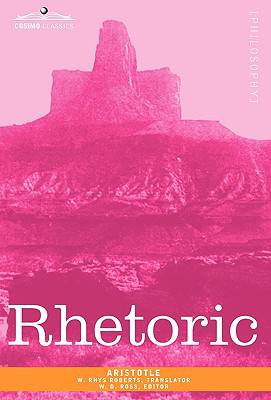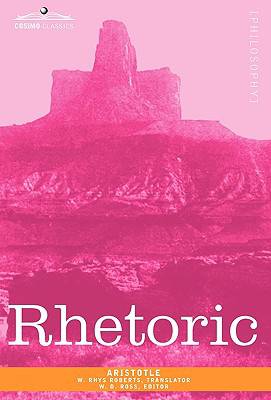
- Afhalen na 1 uur in een winkel met voorraad
- Gratis thuislevering in België vanaf € 30
- Ruim aanbod met 7 miljoen producten
- Afhalen na 1 uur in een winkel met voorraad
- Gratis thuislevering in België vanaf € 30
- Ruim aanbod met 7 miljoen producten
Zoeken
Omschrijving
Students of language, politics, religion, and philosophy have always turned to Aristotle, attributed with one of the greatest intellectual minds that ever lived, for answers and the dissection of seemingly natural phenomena. Aristotle and his contemporaries considered rhetorical skills-the ability to give speeches and make persuasive arguments-one of the most important a scholar could possess. In his famous essay Rhetoric, Aristotle outlines the three basic elements of the rhetorical arts: logos, pathos, and ethos; or logic, emotion, and ethics (truth). This pyramid makes up the tenets of rhetoric which are still taught today, along with Aristotle's examinations on how to interpret and compose effective speeches and presentations. Aristotle (384 BC-322 BC) was a member of the triad of great Greek philosophers: Socrates, Plato, and Aristotle. Student of Plato and teacher of Alexander the Great, Aristotle is considered the authority originator of many philosophical ideas and teachings. Famous today for works such as Politics, Poetics, Rhetoric, and Metaphysics, his many writings cover a wide range of subjects, ranging from literature, art, music, and politics to physics, zoology, biology, and the scientific method.
Specificaties
Betrokkenen
- Auteur(s):
- Vertaler(s):
- Uitgeverij:
Inhoud
- Aantal bladzijden:
- 194
- Taal:
- Engels
Eigenschappen
- Productcode (EAN):
- 9781616403089
- Verschijningsdatum:
- 1/07/2010
- Uitvoering:
- Hardcover
- Formaat:
- Genaaid
- Afmetingen:
- 140 mm x 216 mm
- Gewicht:
- 381 g

Alleen bij Standaard Boekhandel
+ 75 punten op je klantenkaart van Standaard Boekhandel
Beoordelingen
We publiceren alleen reviews die voldoen aan de voorwaarden voor reviews. Bekijk onze voorwaarden voor reviews.











